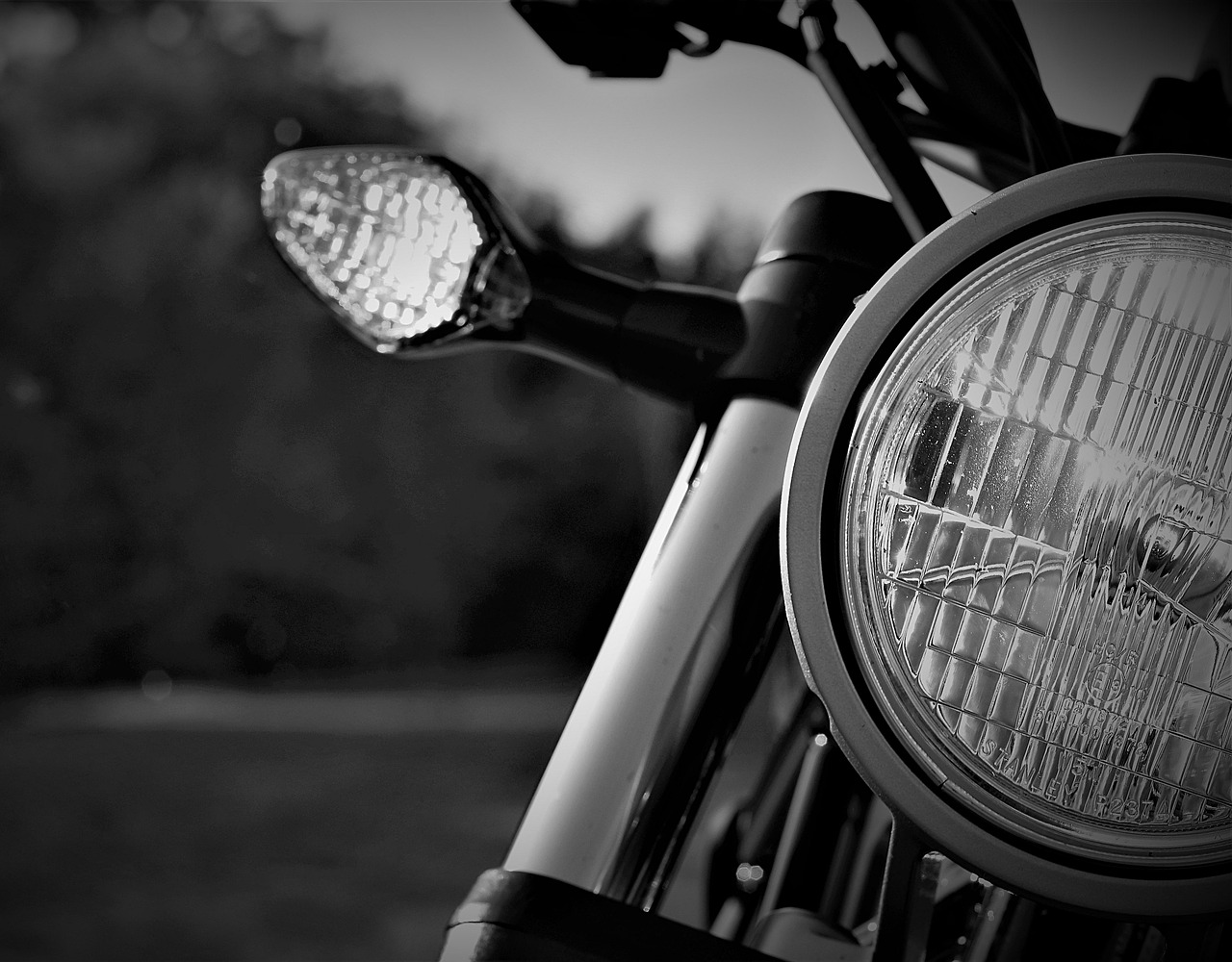This article provides essential insights and tips for prospective buyers considering a used Honda Civic, ensuring informed decisions and a satisfying purchase experience.
The Honda Civic has long been celebrated for its reliability, fuel efficiency, and strong resale value. Understanding its reputation is crucial for buyers. The Civic has a rich history, consistently ranking among the top compact cars. Its blend of practicality and performance makes it a favored choice for many.
Key Features to Look For
- Engine Options: Various engines are available, impacting performance and fuel economy.
- Safety Ratings: Check ratings from organizations like IIHS and NHTSA for peace of mind.
- Technology Packages: Features like infotainment systems can enhance your driving experience.
Engine Variants and Performance
Different engine options significantly influence the driving experience. For instance, the 2.0L engine provides a balance of power and efficiency, while the turbocharged variants deliver a sportier performance.
Fuel Efficiency Ratings
Understanding fuel efficiency ratings is vital for long-term cost estimation. Most Honda Civics achieve impressive MPG, making them economical choices for daily commuting.
Inspecting the Vehicle Before Purchase
A thorough inspection can save buyers from future headaches. Key areas to check include:
- Exterior and Interior Condition: Look for signs of wear and tear.
- Mechanical Inspection: A professional check can reveal hidden issues.
Common Issues in Used Honda Civics
Like any vehicle, used Honda Civics can present specific challenges. Common issues include:
- Transmission Concerns: Be aware of signs indicating potential transmission problems.
- Electrical System Troubles: Familiarize yourself with common electrical issues.
Understanding Pricing and Negotiation Tips
Pricing can vary widely based on model year and condition. Researching market values through resources like Kelley Blue Book can empower buyers during negotiations. Effective negotiation strategies, such as being prepared to walk away, can lead to significant savings.

Understanding the Honda Civic’s Reputation
The Honda Civic has established itself as a cornerstone in the automotive market, celebrated for its remarkable reliability, impressive fuel efficiency, and strong resale value. Since its inception in 1972, the Civic has undergone numerous transformations, adapting to the evolving needs and preferences of drivers worldwide. This adaptability is one of the key reasons why it remains a popular choice among used car buyers.
Initially designed as a compact car, the Civic quickly gained traction due to its affordability and practicality. Over the decades, it has expanded into various body styles, including sedans, coupes, and hatchbacks, catering to a broad spectrum of consumers. Each iteration has built upon the reputation of its predecessors, consistently delivering high-quality engineering and innovative features.
One significant aspect of the Honda Civic’s reputation is its dependability. Many owners report that their Civics have lasted well over 200,000 miles with minimal issues, making it an appealing option for those looking for a long-term investment. This reliability is further supported by various automotive reviews and consumer reports that consistently rank the Civic among the top vehicles in its class.
Moreover, the Civic’s fuel efficiency has made it a favorite among environmentally conscious drivers. With advancements in engine technology, newer models offer exceptional mileage, reducing the overall cost of ownership. This focus on efficiency has also contributed to its low emissions, aligning with the growing demand for eco-friendly vehicles.
Finally, the resale value of the Honda Civic is another critical factor for buyers. It tends to retain its value better than many competitors, making it a smart choice for those who may want to sell or trade in their vehicle in the future. This combination of reliability, fuel efficiency, and strong resale value solidifies the Honda Civic’s status as a trusted vehicle in the used car market.

Key Features to Look For
When considering the purchase of a used Honda Civic, it is crucial to understand that certain features can significantly enhance the vehicle’s overall value. This section delves into essential aspects that prospective buyers should prioritize, ensuring they make an informed decision.
Engine Options and Performance
The Honda Civic is available with a variety of engine options, each offering unique benefits. Buyers should consider:
- Base Engine: Typically a 2.0-liter 4-cylinder engine, known for its reliability and fuel efficiency.
- Turbocharged Engine: A 1.5-liter turbocharged variant that provides a balance of power and efficiency.
- Sporty Variants: Models like the Civic Si and Type R offer enhanced performance for driving enthusiasts.
Safety Ratings and Features
Safety is a top priority for many buyers. The Honda Civic consistently receives high safety ratings from organizations such as the IIHS and NHTSA. Key safety features to look for include:
- Advanced Airbag Systems: Multiple airbags throughout the cabin for enhanced protection.
- Adaptive Cruise Control: A feature that helps maintain a safe distance from other vehicles.
- Lane Keeping Assist: Alerts the driver if the vehicle begins to drift out of its lane.
Technology Packages
The Honda Civic is equipped with various technology packages that can elevate the driving experience. Buyers should seek:
- Infotainment Systems: Features like Apple CarPlay and Android Auto for seamless smartphone integration.
- Navigation Systems: Built-in navigation options that can simplify travel.
- Premium Audio Systems: Enhanced sound systems for audiophiles who enjoy high-quality music playback.
By focusing on these critical features—engine options, safety ratings, and technology packages—buyers can enhance their chances of selecting a used Honda Civic that meets their needs and expectations.
Engine Variants and Performance
When considering a used Honda Civic, one of the most crucial aspects to evaluate is the engine options available. Different engine variants can significantly influence both the performance and fuel economy of the vehicle, making it essential for prospective buyers to understand the benefits of each option.
The Honda Civic has been offered with a variety of engines over the years, each designed to cater to different driving needs and preferences. Typically, buyers can find models equipped with naturally aspirated engines, turbocharged variants, and even hybrid options. Below, we explore the common engine choices found in used Honda Civics:
- 2.0L Inline-4 Engine: This engine is known for its reliability and decent fuel efficiency, offering a balance between power and economy. It typically produces around 158 horsepower, making it suitable for daily commuting.
- 1.5L Turbocharged Inline-4 Engine: For those seeking a more spirited driving experience, this engine provides a boost in performance with approximately 174 horsepower. It also maintains excellent fuel efficiency, making it a popular choice among enthusiasts.
- 2.0L Hybrid Engine: The hybrid variant is designed for maximum fuel economy, delivering impressive mileage while being environmentally friendly. It appeals to buyers focused on sustainability without sacrificing too much in terms of performance.
Each of these engines offers unique benefits, catering to different driving styles and preferences. For instance, the turbocharged engine is ideal for those who enjoy a more dynamic drive, while the hybrid engine is perfect for eco-conscious consumers looking to save on fuel costs.
In addition to engine type, it’s important to consider the fuel efficiency ratings associated with each variant. Understanding these ratings can help buyers gauge long-term costs and make informed decisions based on their driving habits.
Ultimately, selecting the right engine option in a used Honda Civic can lead to a more satisfying ownership experience, aligning with the buyer’s performance expectations and fuel economy needs.
Fuel Efficiency Ratings
When considering the purchase of a used Honda Civic, play a crucial role in understanding the long-term financial implications of your investment. With varying models released over the years, each Honda Civic offers distinct fuel economy figures that can significantly affect your overall ownership costs.
The Honda Civic has consistently been recognized for its impressive fuel economy, making it a popular choice among environmentally conscious buyers and those looking to save on gas expenses. Here, we will delve into the fuel efficiency ratings of various Honda Civic models across different years, providing you with a clearer picture of what to expect.
| Model Year | Engine Type | Fuel Economy (City/Highway) |
|---|---|---|
| 2016 | 2.0L I4 | 26/36 MPG |
| 2018 | 2.0L I4 | 30/38 MPG |
| 2020 | 1.5L Turbo I4 | 31/40 MPG |
| 2022 | 2.0L I4 | 31/40 MPG |
As illustrated in the table above, the fuel economy of Honda Civics has improved over the years, particularly with the introduction of turbocharged engines. For instance, the 2020 model showcases a significant boost in efficiency, achieving up to 40 MPG on the highway. This not only translates to fewer trips to the gas station but also contributes to a reduced carbon footprint.
When evaluating a used Honda Civic, it’s essential to consider how the vehicle’s fuel efficiency aligns with your driving habits. If you frequently drive in urban areas, models with higher city MPG ratings will be particularly beneficial. Conversely, for highway commuters, models that excel in highway efficiency will provide greater savings.
By understanding these ratings and their implications, you can make a more informed decision that not only fits your budget but also enhances your driving experience.
Performance Specifications
When considering the purchase of a used Honda Civic, understanding its is crucial for making an informed choice. The Civic is known for its impressive blend of power, efficiency, and handling, which can significantly influence your driving experience.
One of the key aspects to evaluate is horsepower. Depending on the model year and engine variant, the Honda Civic typically offers a range of horsepower figures, from around 158 to 306 hp in the sportier models. This performance capability allows for a responsive and enjoyable driving experience, whether you’re navigating city streets or cruising on the highway.
Another important specification is torque, which affects how quickly the vehicle can accelerate. The torque ratings in the Honda Civic can vary, with many models offering around 138 to 295 lb-ft. Higher torque figures contribute to better acceleration, making the Civic a fun car to drive, especially in urban environments where quick starts are often needed.
In addition to horsepower and torque, handling characteristics play a significant role in the overall performance of the Honda Civic. The Civic is often praised for its responsive steering and well-tuned suspension, which provide a balanced ride and excellent stability during cornering. Buyers should consider test-driving different models to experience how each variant handles various driving conditions.
| Model Year | Horsepower | Torque | Handling Features |
|---|---|---|---|
| 2020 | 174 hp | 162 lb-ft | Adaptive Suspension |
| 2019 | 158 hp | 138 lb-ft | Sport-Tuned Suspension |
| 2018 | 205 hp | 192 lb-ft | Performance Suspension |
In summary, being aware of the of the Honda Civic—such as horsepower, torque, and handling characteristics—can greatly enhance your evaluation process. By understanding these elements, you can select a model that best fits your driving style and needs.
Safety Features and Ratings
Safety is a paramount concern for many individuals when considering the purchase of a used vehicle, and the Honda Civic is no exception. This compact car has built a solid reputation for its reliability and safety features, making it a popular choice among buyers. In this section, we delve into the various safety features available in used Honda Civics and examine their ratings from reputable organizations such as the Insurance Institute for Highway Safety (IIHS) and the National Highway Traffic Safety Administration (NHTSA).
The Honda Civic is equipped with an array of safety features that enhance driver and passenger protection. These features typically include:
- Advanced Airbag Systems: Most models come with multiple airbags strategically placed throughout the cabin to minimize injury in the event of a collision.
- Anti-lock Braking System (ABS): This system helps prevent the wheels from locking up during hard braking, allowing for better control.
- Electronic Stability Control (ESC): This feature assists drivers in maintaining control of the vehicle during slippery conditions or sudden turns.
- Rearview Cameras: Many newer models include rearview cameras to aid in parking and reversing, significantly reducing the risk of accidents.
- Lane Departure Warning and Lane Keeping Assist: These technologies help keep the vehicle within its lane and alert the driver if they unintentionally drift.
When it comes to safety ratings, the Honda Civic consistently performs well. According to the IIHS, many models have received a Top Safety Pick designation, highlighting their crashworthiness and safety features. The NHTSA also provides ratings, with many Civics earning five-star ratings in various categories, indicating excellent performance in crash tests.
In summary, the Honda Civic stands out as a safe option in the used car market. Its comprehensive safety features and high ratings from respected organizations provide peace of mind for buyers prioritizing safety in their vehicle choice.

Inspecting the Vehicle Before Purchase
When considering the purchase of a used Honda Civic, conducting a thorough inspection is essential to avoid potential issues down the road. A well-executed pre-purchase inspection can provide peace of mind and save buyers from future headaches. Here, we outline the key areas to check during this critical phase of the buying process.
Start by examining the exterior of the vehicle. Look for signs of rust, dents, or scratches that may indicate previous accidents or poor maintenance. Pay special attention to:
- Paint Quality: Uneven paint or mismatched colors could suggest bodywork.
- Tires: Check for even wear and sufficient tread depth.
- Windows and Lights: Ensure there are no cracks or fogging in headlights and taillights.
Next, inspect the interior of the Honda Civic. A well-maintained interior can reflect the overall care of the vehicle. Look for:
- Upholstery Condition: Check for tears, stains, or excessive wear on seats and carpets.
- Dashboard Functionality: Ensure all gauges, buttons, and infotainment systems are operational.
- Odor: A musty smell may indicate water damage or mold.
A comprehensive mechanical inspection is crucial for identifying potential issues. Consider the following:
- Engine Health: Look for leaks, unusual noises, or warning lights on the dashboard.
- Fluid Levels: Check oil, coolant, and transmission fluid levels for cleanliness and proper levels.
- Brakes: Test the brakes for responsiveness and listen for any grinding noises.
Finally, take the Civic for a test drive. This will allow you to assess how the car feels on the road. Pay attention to:
- Acceleration and Handling: Ensure the vehicle accelerates smoothly and handles well through turns.
- Noises: Listen for any unusual sounds that may indicate underlying issues.
- Comfort: Evaluate the comfort of the seats and the overall driving experience.
By thoroughly inspecting these critical areas, buyers can make informed decisions and ensure their investment in a used Honda Civic is a wise one.
Exterior and Interior Condition
When considering the purchase of a used Honda Civic, the condition of both the exterior and interior is a critical factor that can reveal much about the vehicle’s overall maintenance and care. A thorough inspection can help you avoid potential pitfalls and ensure that you are making a sound investment.
Here are some essential tips on what to look for during your inspection:
- Exterior Inspection:
- Paint and Bodywork: Look for any signs of rust, dents, or scratches. Uneven paint can indicate past accidents or poor repairs.
- Windshield and Windows: Check for cracks or chips that may affect visibility and could be costly to repair.
- Tires: Inspect the tread depth and sidewalls. Uneven wear may suggest alignment issues.
- Interior Inspection:
- Upholstery: Examine the seats for tears, stains, or excessive wear. This can indicate how well the previous owner took care of the vehicle.
- Dashboard and Controls: Ensure all buttons, knobs, and displays are functioning correctly. Malfunctions can be a sign of electrical issues.
- Odor: A musty or moldy smell can indicate water damage or leaks, which could lead to more significant problems down the road.
- Overall Condition:
- Maintenance Records: Ask for service history to see if the car has received regular maintenance. A well-maintained vehicle is less likely to have hidden issues.
- Test Drive: Always take the car for a test drive. Pay attention to how it handles, any unusual noises, and the responsiveness of the brakes.
In summary, taking the time to carefully inspect both the exterior and interior of a used Honda Civic can provide valuable insights into its overall condition and maintenance history. This diligence can save you from future headaches and ensure a more satisfying ownership experience.
Mechanical Inspection Considerations
When purchasing a used Honda Civic, ensuring its mechanical integrity is of utmost importance. A mechanical inspection serves as a safeguard against unforeseen issues that could lead to costly repairs down the line. Here are some essential questions to ask your mechanic during the inspection process:
- What is the overall condition of the engine? Understanding the engine’s health is crucial. Ask your mechanic to check for any signs of leaks, unusual noises, or performance issues that may indicate underlying problems.
- Are there any transmission issues? The transmission is a vital component of your vehicle. Inquire about the transmission fluid condition and whether the mechanic notices any slipping or rough shifting.
- How do the brakes perform? Brakes are essential for safety. Request an evaluation of the brake pads, rotors, and overall braking system to ensure they are in good working order.
- What is the condition of the suspension? A well-functioning suspension system contributes to ride comfort and handling. Ask your mechanic to inspect the shocks, struts, and other suspension components for wear and tear.
- Are there any electrical system concerns? Electrical issues can be tricky. Ensure your mechanic checks the battery, wiring, and any electronic components to rule out potential faults.
- How does the exhaust system look? A thorough inspection of the exhaust system can reveal issues with emissions and performance. Ask about any rust, leaks, or damage.
- What is the status of the tires? Tire condition is critical for safety and performance. Inquire about tread depth, alignment, and any signs of uneven wear.
By asking these questions, you can gain a clearer understanding of the vehicle’s condition and make an informed decision. A thorough mechanical inspection not only identifies potential issues but also provides peace of mind, ensuring that your investment in a used Honda Civic is a wise one.

Common Issues in Used Honda Civics
When considering the purchase of a used Honda Civic, it is crucial to be aware of potential issues that may arise. Understanding these common problems can help prospective buyers make informed decisions and avoid unexpected expenses down the road.
Like any vehicle, used Honda Civics can have specific issues. This section discusses the most common problems reported by owners and how to address them.
One of the most frequently reported issues in used Honda Civics is related to the transmission. Owners have noted symptoms such as slipping gears, delayed engagement, or unusual noises during shifting. If you notice any of these signs during a test drive, it is advisable to have a professional inspection done. Regular transmission fluid changes can help prevent some of these issues, but if problems persist, a complete transmission replacement might be necessary.
Another common concern involves the electrical system. Problems may manifest as malfunctioning lights, issues with the power windows, or failure of the audio system. These electrical glitches can often be traced back to faulty wiring or blown fuses. If you experience any irregularities, it’s a good idea to have a thorough diagnostic performed by a qualified technician to identify the root cause.
Suspension problems can also affect the driving experience of a used Honda Civic. Worn-out struts or shocks can lead to a bumpy ride and poor handling. During your inspection, pay close attention to any unusual noises when driving over bumps, and consider having the suspension system checked for wear and tear.
While Honda Civics are known for their reliability, some models may experience engine performance issues. Symptoms can include rough idling, decreased power, or increased fuel consumption. Regular maintenance, including oil changes and air filter replacements, can help mitigate these problems. If you encounter any performance issues, it’s wise to consult a mechanic for a thorough evaluation.
By being aware of these common issues, potential buyers can approach the purchase of a used Honda Civic with greater confidence. Conducting a comprehensive inspection and seeking professional advice can greatly enhance the likelihood of a satisfying ownership experience.
Transmission Concerns
are among the most critical issues to consider when purchasing a used Honda Civic. A malfunctioning transmission can lead to costly repairs and significantly impact the overall driving experience. Understanding the warning signs and what to look for can help potential buyers make informed decisions.
First and foremost, it’s essential to recognize the common signs of transmission problems. These may include:
- Unusual Noises: Grinding, whining, or clunking sounds when shifting gears can indicate transmission issues.
- Delayed Engagement: If there’s a noticeable delay when shifting from park to drive or reverse, this could signal a problem.
- Fluid Leaks: Puddles of reddish fluid under the vehicle may suggest a leak, which can lead to severe transmission damage if not addressed.
- Warning Lights: The check engine light or transmission warning light on the dashboard should never be ignored.
- Slipping Gears: If the vehicle unexpectedly changes gears or loses power while driving, this is a serious concern.
Before making a purchase, buyers should also consider the vehicle’s maintenance history. A well-documented service record can indicate whether the transmission has been regularly serviced or if any repairs were made. Additionally, it’s advisable to have a trusted mechanic perform a pre-purchase inspection. This inspection can uncover hidden transmission issues that might not be visible during a casual check.
Furthermore, understanding the cost implications of transmission repairs can help buyers gauge the potential long-term expenses of owning a used Honda Civic. Repairs can range from minor adjustments to complete transmission replacements, which can be quite expensive.
In summary, being aware of the signs of transmission problems and conducting thorough inspections can save buyers from future headaches and unexpected costs. By taking these precautions, prospective owners can enjoy the reliability and performance that the Honda Civic is known for.
Electrical System Troubles
Electrical system failures can significantly impact the driving experience of a used Honda Civic, leading to various inconveniences for the owner. Understanding these potential issues is crucial for any prospective buyer. This section delves into common electrical problems that may arise in used Honda Civics and offers guidance on how to identify them.
- Battery Issues: One of the most prevalent electrical problems is related to the battery. Signs of a failing battery include difficulty starting the engine, dimming headlights, and electrical accessories not functioning properly. It’s advisable to check the battery’s age and condition during a pre-purchase inspection.
- Alternator Failures: The alternator is responsible for charging the battery and powering the electrical systems while the engine is running. Symptoms of alternator issues include warning lights on the dashboard, a dead battery, or strange noises coming from the engine bay. Testing the alternator’s output can help determine its reliability.
- Fuses and Wiring Problems: Blown fuses can lead to specific electrical components failing, such as headlights, taillights, or power windows. Inspecting the fuse box and checking for any frayed or damaged wiring can help uncover hidden issues that may need addressing.
- Electrical Short Circuits: Short circuits can cause various electrical components to malfunction. Symptoms may include flickering lights or intermittent failures of electrical systems. A thorough inspection of the wiring harness and connections can help identify potential shorts.
- Dashboard Warning Lights: Pay close attention to any warning lights that remain illuminated on the dashboard after starting the vehicle. These lights can indicate underlying electrical issues that require further investigation.
By being aware of these common electrical problems and knowing what to look for, buyers can make more informed decisions when considering a used Honda Civic. A comprehensive electrical inspection, preferably conducted by a qualified mechanic, can help ensure that the vehicle is in good working order and free from potentially costly electrical issues.

Understanding Pricing and Negotiation Tips
When considering the purchase of a used Honda Civic, pricing plays a crucial role in the decision-making process. The price of a used Civic can fluctuate significantly based on factors such as model year, condition, and mileage. Understanding these variables is essential for buyers aiming to secure a fair deal.
First and foremost, it is vital to conduct thorough market research. Utilize online resources like Kelley Blue Book and Edmunds to establish a baseline for the vehicle’s value. These platforms provide insights into average prices based on the vehicle’s specifications and local market trends. By familiarizing yourself with the typical price range for the model year and condition you are interested in, you can make informed decisions and avoid overpaying.
Additionally, factors such as vehicle history and service records can impact pricing. A well-maintained Civic with a clean history report is likely to command a higher price than one with a history of accidents or extensive repairs. Therefore, it is advisable to request a vehicle history report and review maintenance records before finalizing a purchase.
Negotiation is another critical aspect of the buying process. Armed with your research, approach the seller with confidence. Here are some effective negotiation strategies:
- Start Low: Begin your negotiations below your target price to create room for compromise.
- Highlight Issues: If you identify any issues during your inspection, use them as leverage to negotiate a lower price.
- Be Prepared to Walk Away: Demonstrating that you are willing to walk away can give you an advantage in negotiations.
In summary, understanding the pricing landscape and employing effective negotiation tactics can significantly enhance your chances of securing a great deal on a used Honda Civic. By being well-informed and strategic, you can navigate the buying process with confidence.
Market Value Research
When it comes to purchasing a used Honda Civic, understanding the market value is crucial for making an informed decision. Researching market values can significantly empower buyers during negotiations, allowing them to secure the best possible deal. This section delves into essential resources that can aid in determining a fair price, ensuring that you are well-prepared before entering the negotiation room.
Two of the most reliable tools for assessing the market value of used vehicles are Kelley Blue Book and Edmunds. These platforms provide comprehensive pricing data based on various factors, including the car’s make, model, year, mileage, and condition. By utilizing these resources, buyers can gain a clearer understanding of what a fair price looks like for the specific Honda Civic they are considering.
- Kelley Blue Book: Known for its extensive database, Kelley Blue Book offers detailed pricing information that reflects current market trends. It allows users to input specific details about the vehicle to receive an accurate valuation.
- Edmunds: Similar to Kelley Blue Book, Edmunds provides valuable insights into vehicle pricing. It also includes expert reviews and consumer feedback, which can help buyers assess the overall value of the Honda Civic.
In addition to these resources, it is advisable to check local listings on platforms such as Autotrader and Cars.com. These websites can give you a sense of the pricing landscape in your area, helping you identify any discrepancies between your research and actual market offerings.
Moreover, understanding the historical pricing trends of the Honda Civic can also provide context. Factors such as model year updates, popularity spikes, and seasonal demand can influence prices. Keeping an eye on these trends will further enhance your negotiating power.
Ultimately, thorough market value research not only equips buyers with the necessary information to negotiate effectively but also fosters confidence in their purchasing decisions. By leveraging these tools and insights, you can approach your used Honda Civic purchase with assurance and clarity.
Effective Negotiation Strategies
When it comes to purchasing a used Honda Civic, negotiating the price can be one of the most critical steps in the buying process. Successfully negotiating can lead to substantial savings, allowing you to get the best deal possible. Here are some practical tips and strategies to help you navigate the negotiation process effectively:
- Do Your Research: Before engaging in negotiations, conduct thorough research on the market value of the specific Honda Civic model you are interested in. Utilize resources such as Kelley Blue Book and Edmunds to gather information on average prices, taking into account the vehicle’s condition, mileage, and additional features.
- Set a Budget: Determine your budget beforehand and stick to it. Having a clear financial limit will help you avoid overspending during negotiations and keep you focused on finding a vehicle that meets your needs without breaking the bank.
- Inspect the Vehicle: Before discussing price, ensure you thoroughly inspect the vehicle. Look for any signs of wear and tear, and consider getting a mechanic’s opinion. If you find issues, use them as leverage to negotiate a lower price.
- Start Low: Begin your negotiation with a price lower than what you are willing to pay. This gives you room to negotiate upwards while still aiming to stay within your budget. Be respectful but firm in your approach.
- Be Prepared to Walk Away: One of the strongest negotiation tactics is the willingness to walk away if the deal does not meet your expectations. This shows the seller that you are serious about finding the right price and can often lead to better offers.
- Stay Calm and Patient: Negotiations can sometimes be tense, but it’s essential to remain calm and patient throughout the process. Keeping a level head can help you think clearly and make better decisions.
By employing these strategies, you can enhance your negotiation skills and increase your chances of securing a great deal on a used Honda Civic.
Frequently Asked Questions
- What makes the Honda Civic a reliable choice?
The Honda Civic is celebrated for its durability and long-lasting performance. With a strong reputation for quality engineering, many owners report their Civics running smoothly even after several years. Plus, its resale value tends to remain high, making it a smart investment.
- How can I assess the fuel efficiency of a used Honda Civic?
Fuel efficiency varies by model year and engine type. To gauge this, check the EPA ratings for the specific model you’re considering. Generally, newer models offer better fuel economy, so look for those if saving on gas is a priority!
- What should I inspect during a pre-purchase inspection?
Focus on both the exterior and interior condition, as well as mechanical components. Look for signs of wear and tear, rust, or damage. It’s also wise to ask a mechanic to check the engine and transmission for any potential issues.
- Are there common issues I should be aware of?
Yes, some used Honda Civics may experience transmission problems or electrical system failures. Look out for signs like slipping gears or dashboard warning lights. Being informed helps you avoid costly repairs down the line!
- How can I effectively negotiate the price?
Start by researching the market value of the model you want. Use resources like Kelley Blue Book to compare prices. When negotiating, be confident and ready to walk away if the deal isn’t right for you!



